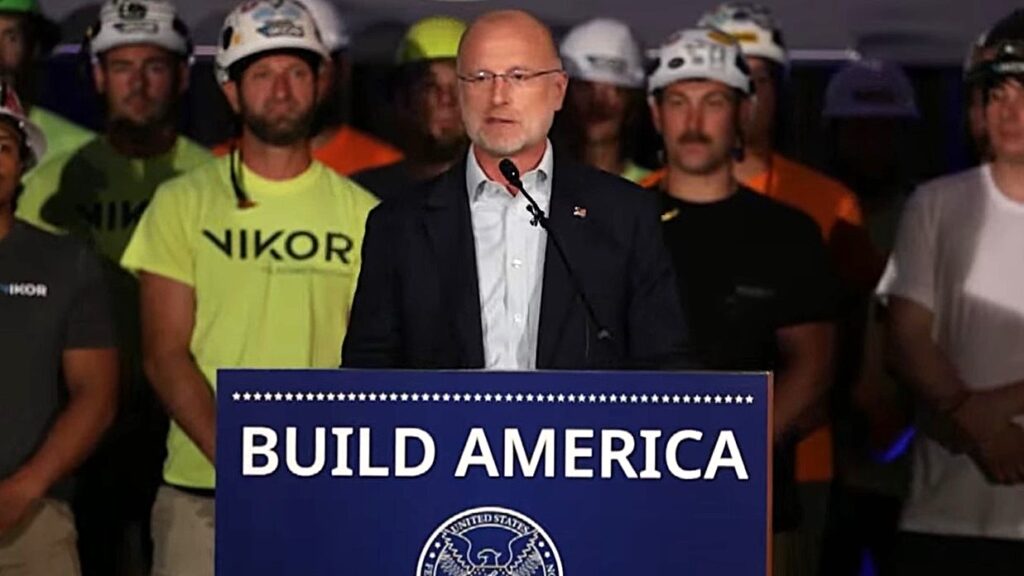With Recent Funding, “No Excuse” for Lack of Rural Broadband Coverage
Randy Sukow
|

After passing many billions of dollars in support for broadband construction and affordability in recent years, the telecommunications industry should not expect Congress to pass any other large expenditures in the near-term. However, speakers at the online USTelecom Broadband Investment Forum yesterday afternoon, indicated that internet service providers winning awards from the current rounds of broadband funding could soon receive some tax relief.
Most of the forum discussion centered around the $10 billion capital projects funding in the American Rescue Plan Act (ARPA), with $10 billion in funding to the states through the U.S. Treasury, with state and local governments having the option to use funds for broadband projects, and the Commerce Department’s $42 billion Broadband Equity, Access and Deployment (BEAD) program, also distributed through the states. Attendees also were interested in the future of existing programs, including the FCC’s universal service programs.

“Writ large, we should have no excuse if over the next two to four years, we don’t get at least 96, 97, 98 percent of all Americans covered with affordable high-speed broadband,” said featured speaker, Senator Mark Warner (D-VA). “I think you’ll see some additional incremental support coming out of Congress, but after [ARPA], I don’t think you’re going to see that level of largesse out of the federal government again in the short term. I’m urging states to use those funds wisely and I can’t think of a better utilization than broadband.”
Warner is co-author of the Broadband Grant Tax Treatment Act (BGTTA), a bill to give ARPA and BEAD broadband award winners a tax break. Congress made funding through ARPA and the Infrastructure Investment and Jobs Act (BEAD’s parent legislation) taxable income. BGTTA would single out broadband development funds from those laws and make them non-taxable. He said the bill could potentially pass before the end of the calendar year through a larger spending bill in the lame duck session of Congress.
“It is critically important. When I was trying to convince my Democratic colleagues that we should put $10 billion through the treasure [through ARPA] we thought that $10 billion would go directly to broadband, not with $8 billion to pay taxes on,” he said. He had the same expectation when debating the infrastructure bill, he said.
“Taxing the grants would limit the effectiveness of the deployment. Fewer people would receive broadband services in our state and around the country and it would reduce the chances that rural America would get the services that it needs,” said Senator Jerry Moran (R-KS), the bill’s co-author. “Forcing broadband providers to pay back a portion of their deployment funds just lacks common sense.”
Moran also commented on the future of the FCC’s universal service program during the forum. Some rural telcos have been concerned that Congress has paid less attention to universal service while passing larger amounts of broadband funding through other agencies. “Congress and the FCC must ensure that the universal service fund and its funding mechanism is stable, and it is not stable at the moment because of the decline in the use of landlines,” Moran said.
He said that supports a bill to require the FCC to study the current universal service contribution rules and to the begin a rulemaking to reform the process. Some rural telcos have favored requiring broadband internet access services (BIAS) to contribute to the fund as a way to make up for losses in landline fees.
Former New Orleans Mayor Mitch Landrieu, currently an advisor to the White House on infrastructure, urged forum participants to promote heavy participation in the FCC’s Affordable Connectivity Program (ACP). USTelecom President and CEO Jonathan Spalter claimed that under current funding levels, ACP could run out of money in about a year and asked whether the Biden Administration favors making it a permanent program.
“There’s $14 billion [in ACP] and I think only $2 billion has been spent. This thing is going to be funded for a fairly significant amount of time. The more people that have access to it, the harder it will be for Congress to end the program,” Landrieu said. “I think the president’s view on this is that it has such broad-based support across all of America, it would be hard to see Congress at some point in time choose not to fund it.”


